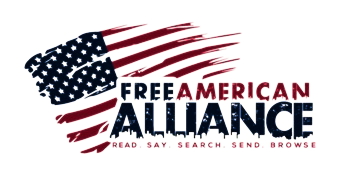Sanders locks onto next drug pricing target: Ozempic
Sanders, chair of the Senate Health, Education, Labor, and Pensions (HELP) Committee, announced...
Read More
Sanders, chair of the Senate Health, Education, Labor, and Pensions (HELP) Committee, announced...
Read MoreFormer President Donald Trump called out the “hate” and “anger” among protesters on various U.S....
Read MoreFormer President Donald Trump called out the “hate” and “anger” among protesters on various U.S....
Read MoreOAN’s Stella Escobedo3:25 PM – Thursday, April 25, 2024 17 U.S. cities and states are changing...
Read MoreJohn Sauer, the Missouri-based attorney for Trump, humiliated liberal Justice Ketanji Brown Jackson during Thursday’s oral arguments on Trump’s immunity claim before the Supreme Court. The Supreme Court on Thursday heard oral...
Read MorePaul Cassell, lawyer for the families of those who died in the 2018 and 2019 737 MAX crashes,...
Read MorePaul Cassell, lawyer for the families of those who died in the 2018 and 2019 737 MAX crashes,...
Read MoreWhite House calls Trump’s Charlottesville ‘peanut’ comments ‘repugnant and divisive’ | The Hill...
Read MoreIn what may be one of the most important and historic cases the U.S. Supreme Court has ever...
Read MoreThe parent company of TikTok, ByteDance has drawn a line in the sand. Apparently, they would...
Read MoreThe parent company of TikTok, ByteDance has drawn a line in the sand. Apparently, they would...
Read MorePalestinian terrorists, likely Hamas, fired mortars at the new pier the US is building to bring...
Read MoreAmy Duggar King hopes her cousin, Josh Duggar, is anything but comfortable during his 12½-year...
Read MoreThe net neutrality rules were first implemented by the FCC under Obama, but the commission...
Read MoreThe net neutrality rules were first implemented by the FCC under Obama, but the commission...
Read MoreA Secret Service agent was removed from their assignment of protecting Vice President Kamala...
Read MoreU.S. Vice President Kamala Harris speaks during a ‘First In The Nation’ campaign rally at South...
Read MoreIn the four-week period ending April 21, the company said the price reached $383,725, marking one...
Read MoreSupreme Court to hear case on homeless crisis Los Angeles business owner Paul Scrivano and...
Read MoreSpecial anti-terrorism measures being put in place to safeguard the unprecedented opening ceremony...
Read More

Changes are coming to CauseACTION as we roll out a Suite of Social Media tools dedicated to common sense, Conservative and Independent Americans, and the uncensored content from over 150 Conservative Publishers, Causes, Advocacies, and Nonprofits with live streaming of Top 50 Conservative Radio Talk Shows and Podcasts... all in one place, without ads, or any distractions.
CauseACTION and Constitutionally-grounded web experts from Silicon Valley to New England have come together to deliver to you the "Free American Alliance"... the largest pool of Conservative news, opinion, and both video and audio content (FreeREAD, FreeTALK, FreeWATCH), the FreeSAY social exchange platform, and the only untracked, uncensored search engine with its own independently-owned, Web Index, FreeSEARCH.
If you would like to learn more about FreeSEARCH and a lot more of what really goes on behind the scenes in Silicon Valley, then listen to Rich Lepoutre and Steve Marshall's post DuckDuckGo Debacle here
The Freedom to Search With Zero tracking, Censorship or Steering of Results
Listen To Over 100 Of Your Favorite Conservative Talk Shows And Podcasts.
Watch Your Favorite Conseervative Video Channels And That Incudes The Hundreds Of Conservative YouTube Videos That Have Been Banned By Google.
